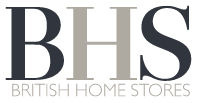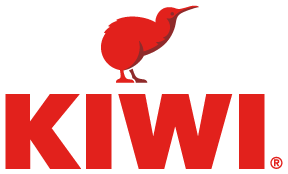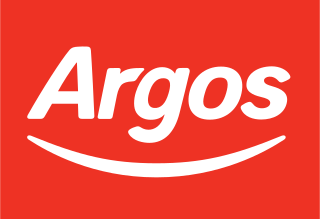
Foster's Lager is an internationally distributed brand of Australian lager. It is owned by the Japanese brewing group Asahi Group Holdings, and is brewed under licence in a number of countries, including its biggest market, the UK, where the European rights to the brand are owned by Heineken International.

Marmite ( MAR-myte) is a British savoury food spread based on yeast extract, invented by the German scientist Justus von Liebig. It is made from by-products of beer brewing (lees) and is produced by the British company Unilever. Marmite is a vegan source of B vitamins, including supplemental vitamin B12. A traditional method of use is to spread it very thinly on buttered toast.
Safeway Limited is a British groceries brand, and former chain of supermarkets and convenience shops. The British Safeway was founded in 1962 by the American Safeway Inc., before being sold to Argyll Foods in 1987. It was later listed on the London Stock Exchange. It was purchased by Morrisons in March 2004. Most of its 479 shops were rebranded as Morrisons, with others being sold. Safeway-branded shops disappeared from the United Kingdom on 24 November 2005.

J Sainsbury plc, trading as Sainsbury's, is a British supermarket and the second-largest chain of supermarkets in the United Kingdom.

Esso is a trading name for ExxonMobil. Originally, the name was primarily used by its predecessor Standard Oil of New Jersey after the breakup of the original Standard Oil company in 1911. The company adopted the name "Esso", to which the other Standard Oil companies would later object.
A deodorant is a substance applied to the body to prevent or mask body odor caused by bacterial breakdown of perspiration, for example in the armpits, groin, or feet. A subclass of deodorants, called antiperspirants, prevents sweating itself, typically by blocking sweat glands. Antiperspirants are used on a wider range of body parts, at any place where sweat would be inconvenient or unsafe, since unwanted sweating can interfere with comfort, vision, and grip. Other types of deodorant allow sweating but prevent bacterial action on sweat, since human sweat only has a noticeable smell when it is decomposed by bacteria.

Cif is a French brand of household cleaning products owned by the British company Unilever, known as Jif in Australia, New Zealand, Japan, Middle East and the Nordic countries.

British Home Stores, commonly abbreviated to BHS and latterly legally styled BHS Ltd, was a British department store chain, primarily selling clothing and household items. In its later years, the company began to expand into furniture, electronics, entertainment, convenience groceries and fragrance and beauty products.

Kiwi is a global brand of shoe polish, originally developed in Australia in 1906 by William Ramsay. Kiwi has grown to be the dominant shoe polish in many countries since it was used by both the British and U.S. Armies in World War I. However it announced its exit from the UK market in 2022. Soon afterwards in 2023 Kiwi announced it will be ending the brand in the US by June 2024, sunsetting certain products before the 2023 year even ended.

Persil is a German brand of laundry detergent manufactured and marketed by Henkel around the world except in the United Kingdom, Ireland, France, Latin America, China, Australia and New Zealand, where it is manufactured and marketed by Unilever. Persil was introduced in 1907 by Henkel. It was the first commercially available laundry detergent that combined bleach with the detergent. The name was derived from two of its original ingredients, sodium perborate and sodium silicate.

Argos Limited is a British catalogue retailer operating in the United Kingdom and formerly in Ireland, acquired by Sainsbury's supermarket chain in 2016. It was established in November 1972 and is named after the Greek city of Argos. The company trades both through physical shops and online, with 29 million yearly shop customers, and nearly a billion online visitors per annum. It has also franchised overseas to countries such as China.

Russian Standard is a major Russian company producing the vodka brand of the same name. The brand was founded by Roustam Tariko in 1998.

Lipton is a brand named after its founder, Sir Thomas Lipton who started an eponymous grocery retail business in the United Kingdom in 1871. The brand was used for various consumer goods sold in Lipton stores, including tea from 1890 for which the brand is now best known.

Hygena is a dormant brand of fitted kitchen and furniture in the United Kingdom.

Pepsi Raw was a cola soft drink created by PepsiCo and Britvic exclusively introduced in the United Kingdom in 2008 as a "Sparkling Cola Drink with Natural Plant Extracts". Pepsi Raw contained naturally sourced ingredients that were free from artificial flavouring, colourings, preservatives and sweeteners. Advertising for Pepsi Raw presented the product as a natural alternative to other colas. Pepsi Raw was also marketed in Norway and Australia.
Sainsbury's Local is a chain of 820 convenience shops operated by the UK's second largest supermarket chain Sainsbury's.
Palethorpe's is a British producer of cooked meat and pastry products and was particularly well known for its branded sausages. Founded in 1852, it was bought by the Bibby Group in 1969 and then by Haverhill Meat Products before becoming part of the Northern Foods Chilled Foods division in 1991. Palethorpes was then part of Pork Farms before being taken over by the Addo Food Group in turn owned by PAI Partners.
In the United Kingdom, it is common practice for retailers to have their own value brand in an effort to compete on price. These brands have become more popular in the UK with shoppers since the Great Recession caused food prices to rise.

Netto was a discount supermarket chain in the United Kingdom. Netto arrived in the United Kingdom in December 1990, as part of an internationalisation process by its Danish owner, Salling Group. By May 2010, it operated 193 stores, before it was sold to Asda. In June 2014, Salling Group returned Netto to the United Kingdom, as a 50:50 joint venture with Sainsbury's.














